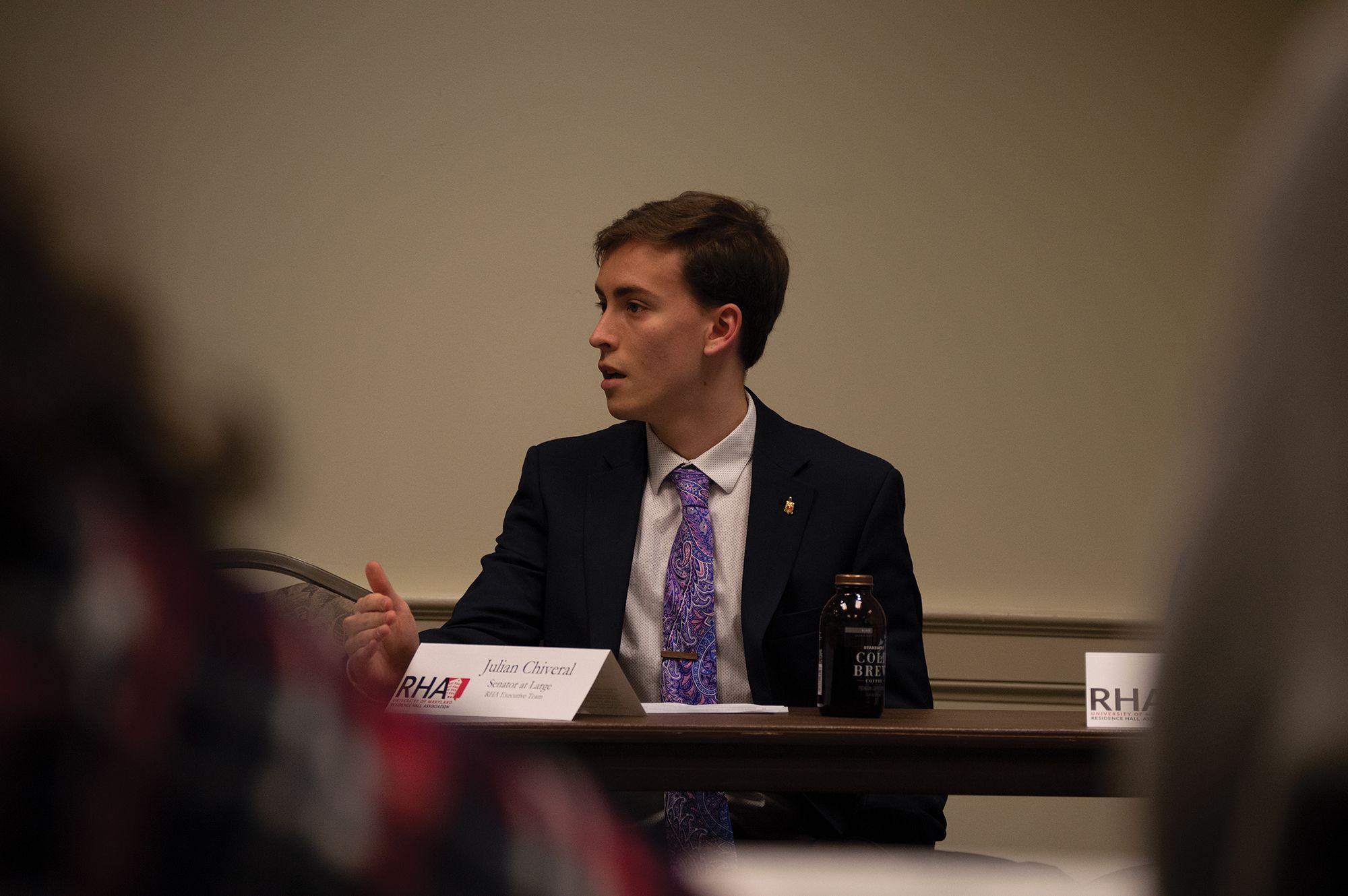Following in the steps of several other student governing organizations, the University of Maryland RHA passed a resolution on Tuesday to support making part of the student athletics fee non-mandatory.
After DJ Durkin’s reinstatement and subsequent firing as Maryland football’s head coach, both the Graduate Student Government and the Student Government Association expressed dismay with mandatory student fees.
In August, the Board of Regents — which sets policy for the University System of Maryland — took control of an investigation into the culture of Maryland football after offensive lineman Jordan McNair’s death and allegations of abuse. The regents recommended Oct. 30 that Durkin and athletic director Damon Evans keep their jobs; President Wallace Loh initially accepted their recommendations, then reneged and fired Durkin the next day.
The same day, the SGA passed a resolution that called for the portion of mandatory athletics fee that funds student tickets to be an opt-in program. A few days later, the GSG passed similar legislation for the mandatory graduate student fee.
[Read more: You’ve heard of AlcoholEdu. Now, UMD students are working on GreenEdu.]
Currently, the university charges full-time undergraduates a $406 annual athletics fee, 75 percent of which goes to student tickets. If that part of the fee became opt-in, the other 25 percent — which contributes to game-day experiences, facility renovations and salaries for students employed by athletics — would still be required.
The resolution was proposed by senator-at-large Julian Chiveral.
“A lot of students don’t actually attend the games, and then they are paying for this service they don’t take advantage of,” the junior mathematics and mechanical engineering major said.
The meeting lasted nearly three hours, an hour and a half of which was debate on the athletics fee. The motion eventually passed 30-13 after three amendments were proposed, two of which were passed by the end of the night.
[Read more: A new ResLife program puts “multicultural advocates” in some UMD dorms]
The RHA would like to have an opt-in program based on “those of our peer institutions,” Chiveral said. Northwestern and Rutgers are the only two other Big Ten schools that mandate the fee.
Vice president Benjamin Reichard said that one of the reasons the RHA doesn’t have a more concrete vision for how the opt-in plan would work is because “athletics hasn’t been willing to talk to student leaders about it.”
“We’ve tried to find out what that would look like, and athletics is not willing to come to the table,” Reichard said, later noting that the RHA has not been in direct contact with the athletic department but they have seen SGA leaders get “the runaround.”
Reichard said the main debate was about whether the resolution would support removing athletics fees for student tickets for all sports, or “just the big, exclusionary ones,” which were football and men’s basketball.
President Bryan Gallion proposed an amendment that would allow students to still have “unlimited” access to Olympic sporting events while removing the $305 mandatory athletic fee for undergraduates.
Dan Laffin, a member of the executive board, said that if the RHA opened the door to eradicating the mandatory athletics fee, that would bring up questions about other mandatory student fees, such as those that contribute to The Clarice Smith Performing Arts Center and the Eppley Recreation Center.
“Do we want to keep the fee for Eppley for those of us who don’t use the gym?” the junior economics and government and politics major asked the body.
Shawn Verma, a senior computer engineering major, said the RHA would no longer be supporting students “instead of a gym that you never use” if they were to remove funding from sports other than football and men’s basketball.
He also suggested that instead of the RHA supporting the opt-in program, they as a body should specify exactly what they want changed about the fees so that the athletic department doesn’t counter with different legislation.
“The university won’t come back to us,” he said.
Gallion was satisfied with the discussion as a whole.
“It’s great that the RHA senate tonight was able to come to a consensus on what we believe is best for resident students,” the senior journalism major said. “I hope this prompts a conversation with athletics moving forward.”



